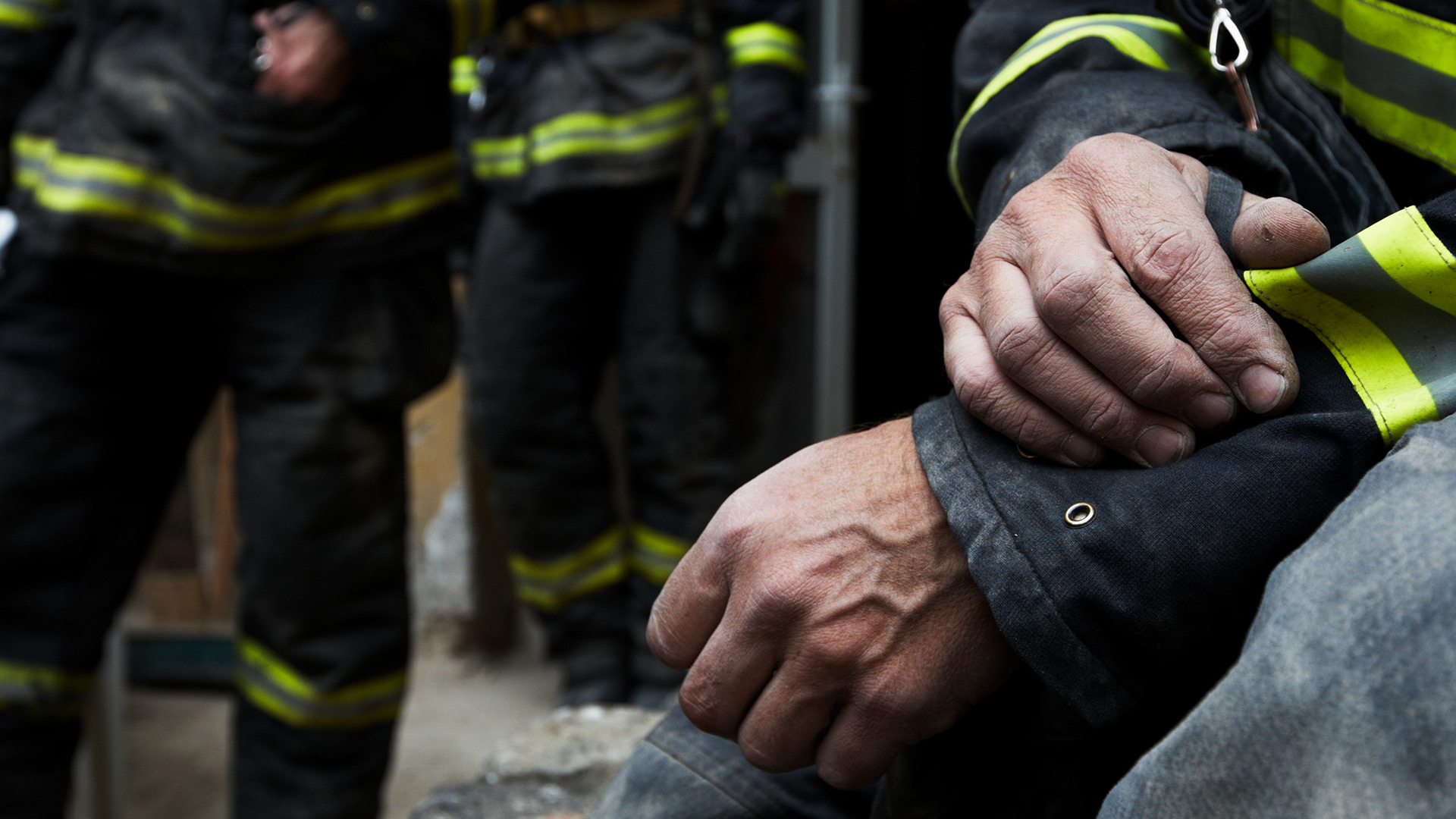Atrium Health issued the following announcement on Feb. 24.
Even the toughest need to ask for help – or, perhaps, especially the toughest need to ask for help. And few are tougher than first responders, whose face death, tragedy and great risk as part of their daily work.
The pandemic has compounded the stress of this work, exacerbating mental health challenges. More police officers and firefighters now die by suicide than in the line of duty. That’s why Michael T. Gerin, fire chief at Pineville-Morrow Volunteer Fire and Rescue, believes in being straight-forward with his department about the importance of mental health.
“I talk about [mental health] a lot because everyone knows that I go to therapy,” Chief Gerin says. “At my department, it comes from the top down. I have to set an example.”
Facing Death and Tragedy on Every Shift
For first responders, the job has always come with major stressors. Demanding work schedules interrupt sleep cycles and family lives. First responders can encounter a lack of trust from some of the people they work to help, and death is something they’re prepared to face each day.
The pandemic, however, has made this work even harder. Stations often face new staffing issues, resulting in overtime and exhaustion. During lockdowns, these jobs couldn’t be done remotely, creating childcare difficulties and the risk of bringing COVID-19 home. When challenges of this magnitude accrue, mental health can suffer. Dying by suicide is often an accumulation of hardships that become a perception of insurmountable pain.
“When people die by suicide, typically they don’t want to die,” says James Rachal, MD, senior academic chairman of the Department of Psychiatry and psychiatrist at Atrium Health. “They just don’t want to experience that pain any longer, and their ability to cope with the pain and to problem solve through that pain has been exhausted. They feel like there is nothing else they can do.”
Oftentimes, first responders don’t have time to process one terrifying experience before they face the next one. Dr. Rachal says that the profession offers few release points. Emergency medical services (EMS) clinicians, police officers, firefighters and public safety telecommunicators have a greater risk of suicide, compared to the general public. One in four police officers has thought of suicide.
Warning signs of mental health challenges include an increase in alcohol or drug use, isolation and decreased performance. Aggression and irritability can signal depression.
“[Mental health challenges are] kind of like cancer with us,” says Chief Gerin. “Just as many people just assume they’ll get cancer, I assume we’ll all struggle with mental health, too.”
“Talking about your feelings can really make a difference”
Therapy can be an effective tool to restore or maintain mental health. Discussing difficult experiences and emotions with a trained therapist may be difficult, but not processing them can cause those experiences and emotions to linger longer.
“Sometimes, it can be about giving yourself license to process your experiences,” Dr. Rachal says. “It’s been shown to be effective to designate a time to deal with these emotions. Maybe it’s reserving an hour a week to talk to a therapist, to contain that time so you’re not continuing to ruminate. The idea that you can suppress these feelings so that they go away isn’t realistic. They’ll continue to sit at the forefront.”
Yet for some, a stigma persists against therapy. Many first responders might not realize how many of their colleagues receive mental health support to cope with the stressors of their jobs. Dr. Rachal encourages first responders, if they are comfortable doing so, to share their mental health challenges and experiences with therapy with their colleagues. The greater the sharing, the less the stigma.
“Especially now with the pandemic, we need to be asking important behavioral health questions while decreasing the stigma around talking about suicide,” says Kate Penny, the coordinator of Atrium Health’s Zero Suicide program. “If you’re not doing well and you need help, talking about your feelings can really make a difference.”
The Strength of Seeking Help
Chief Gerin uses therapy to help process the stressors of his job, and he shares his experiences to help his colleagues see the value in prioritizing mental health. Charlotte Mecklenburg Fire Department has two mental health clinicians available to offer mental health support.
“Firefighters aren’t mental health counselors. Getting things off your chest is one thing, but seeing a mental health expert is another,” Chief Gerin says. “Asking for help is not a weakness. It doesn’t make you any less of a firefighter.”
Dr. Rachal echoes Chief Gerin’s words. He wants first responders to understand that resources exist that can help them get through their pain and to heal.
“Depression, as well as suicidal thoughts, tend to be temporary. People can get better – with therapy and sometimes with medication,” Dr. Rachal says. “People can go on to live normal lives.”
Original source can be found here.

Source: Atrium Health






 Alerts Sign-up
Alerts Sign-up